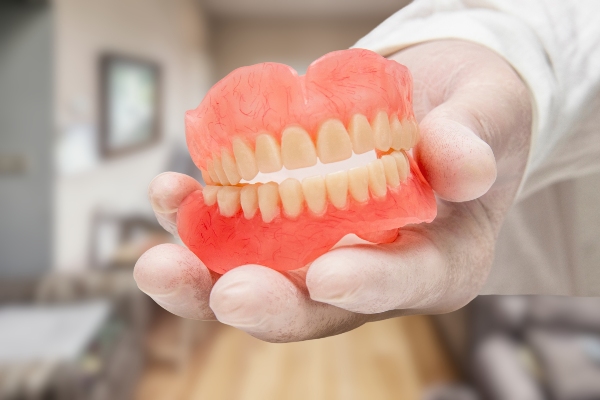Dental Veneers Versus Crowns

For restorative and cosmetic dentistry, both dental veneers and crowns are great solutions. However, these are two different remedies. For that reason, you need to consult with a dental professional to determine the right one for you. Either way, with the process completed, you will have a gorgeous smile.
What are dental veneers?
Dental veneers are small wafers made of either composite resin or porcelain. After removing a small amount of the tooth’s enamel, the dentist adheres the veneers to the surface of the permanent teeth. Typically, veneers only go on the front teeth since they are the most visible. Because these are quite thin, it is important to take good care of them.
As part of that, a patient must brush and floss regularly. Also, most dentists advise not eating or drinking anything that could stain the veneers. This is important considering there is no way to whiten them once in place. Good all-around oral hygiene will go a long way in protecting veneers.
During a consultation with a dentist, the patient would determine the whiteness of the dental veneers wanted. From there, a laboratory makes them using a mold created at the dental office. It usually takes two to four weeks to complete the process. At that point, the patient returns for a follow-up appointment to have the veneers applied.
What are crowns?
Unlike dental veneers that dentists place on a patient’s front teeth, a crown can cover any tooth. One similarity between the two options is that they both conceal damage. For instance, veneers and crowns hide teeth with cracks and chips. One difference is that usually, a dentist does not use crowns to correct yellowing as with dental veneers. Also, a dentist can place a crown during a single office visit.
Depending on the patient’s problem, a dentist might apply a crown after performing a root canal. In that case, the dental professional would first drill a hole in the tooth to remove the pulp and any debris. The dentist would also reshape the canal through which the root runs. With that finished, a crown would go on top of the existing permanent tooth.
Fantastic benefits
Although most people choose dental veneers to achieve a gorgeous smile, this treatment is also an option for correcting problems. In comparison, a crown helps save a person’s permanent tooth. Every dentist has the same goal: saving natural teeth. For that reason, they use crowns as a way to accomplish that. Regardless if someone goes with veneers or needs a crown, these procedures protect permanent teeth.
In the case of dental veneers, people can proudly show their smile. As for crowns, patients avoid having a tooth extracted, which leaves a big gap. When that happens, the individual would need some type of bridge or a dental implant. What it comes down to is that both dental veneers and crowns make people feel better about themselves when talking, laughing and smiling.
Seek professional help
If you have a problem with one or more teeth, you need to schedule an appointment to see a dentist. Do not delay as a simple issue could turn into something major. If a dentist catches the problem early enough, you could choose between dental veneers or crowns. Otherwise, your only option might be a tooth extraction.
Request an appointment here: https://brimhalldentalgroup.com or call Brimhall Dental Group at (661) 249-1122 for an appointment in our Bakersfield office.
Check out what others are saying about our services on Yelp: Read our Yelp reviews.
Recent Posts
False teeth, or dentures, are the traditional option for replacing any number of missing teeth for many reasons. They are easy to use and affordable and can also be custom-made for each patient. Discover the many benefits of custom dentures below.Since dentures replace missing teeth, they make it much easier to bite off and chew…
Dentures are a popular teeth replacement solution that can improve the function and appearance of your smile. They are designed to look like natural teeth and consist of different materials, such as acrylic and metal. Whether you are new to dentures or have been wearing them for years, it is important to properly care for…
When sudden dental pain occurs, an emergency dentist can provide critical relief and timely treatment. A toothache often appears unexpectedly, disrupting daily activities or restful sleep at night, signaling that you need urgent dental care. Understanding what steps to take when this type of pain occurs can help prevent further complications to your teeth and…
Dentures will give you the freedom to smile, speak, and eat well. These custom-fit restorations can provide comfort while wearing them. Knowing how these restorations can help your appearance, you can make informed decisions before your treatment. Here are the details on how dentures can enhance your smile.Dentures can replace missing teeth and can be…


